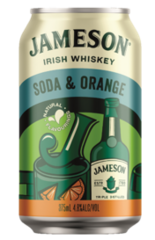The Irish claim to have invented whiskey, and it’s currently the fasted growing spirit in the world. So what makes it different from the rest?
For a start, there’s the spelling.
While the Scots, the Japanese, the Canadians and pretty much everyone else spell it ‘whisky’, the Irish and their cousins in the USA spell it ‘whiskey’.
Why? Well, believe it or not, back in the 19th century, Scotch was pretty poor quality. The Irish, keen to export over to America, wanted to differentiate their product and so they started spelling it with that additional ‘e’.
Back then, Scotch was often made in a Coffey still, but these days Scotch stills vary in shape and size, giving the resulting nectar very different characteristics and flavour styles.
By contrast, Irish whiskey is still made using their traditional pot still method. There are, in fact, only 11 distilleries in Ireland, compared to over 80 in Scotland.
They mostly adhere to traditional recipes and techniques, using only slight variations to give their whiskey a unique flavour.
Irish whiskey is commonly triple distilled, producing a lighter and smoother spirit.
Irish whiskey makers also tend to use wood to dry the grains, not peat, so those heavy, smoky elements aren’t present. Many Irish whiskeys blend their malted barley spirit with grain whiskey, which also contributes to the light, smooth and well-balanced flavour.
This flavour profile makes Irish whiskey perfect for cocktails and mixed drinks, as well as on the rocks or neat.







